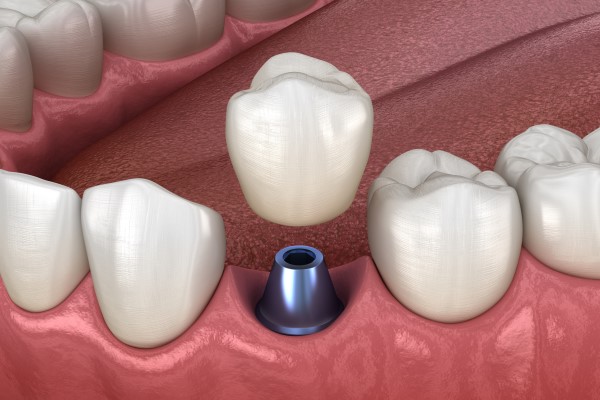4 Signs You May Need Implant Dentistry

Are you missing one or more teeth and looking for information on implant dentistry? Continue reading to find out more about this type of dental restoration. Tooth loss could happen for several reasons, but there is a long-term solution that looks and functions just like natural teeth with implant dentistry. In addition, dental implants restore lost teeth permanently, allowing you to resume regular activities.
A review of implant dentistry
When there is a dental issue, patients might have difficulty biting, eating, and talking normally. The cause might be missing teeth or that the dentition has altered over time owing to factors such as grinding or severe decay. Dental implants are a pretty straightforward solution to this problem. They can replace lost or broken teeth and restore normal oral functions.
The following are warning signals that suggest dental implants might be in order:
Severely cracked or broken tooth
If a patient suffers a cracked, chipped, or broken tooth due to an accident, they may need dental implants. Since serious tooth fractures or cracks increase the risk of infection and discomfort, they typically need removal. This is especially true if there are no alternative options for repairing the tooth.
Based on the damage to the tooth, the dentist will be able to assess if the patient requires an implant. The fractured tooth will most likely be extracted and replaced with an implant so patients can chew, talk, and eat normally. While dentists want to salvage as much of the original tooth as possible, restoration is not always possible. A dental implant will replace the lost root and maintain the smile’s appearance and function.
One or more missing natural teeth
Gaps in the smile due to missing teeth might make one feel self-conscious, but they can also cause problems with the jawbone and the stability of the surrounding teeth. Implants promote jaw bone development and prevent the movement of neighboring teeth in the mouth.
Loose-fitting partials or a denture
It is exasperating to deal with ill-fitting partials or dentures, and many patients report feeling more self-conscious when wearing dentures. With just four small implants in the jaw, the dentist can restore an entire arch of missing teeth. Dentures that are implant-supported are permanent, so one will not have to worry about denture adhesives or feeling self-conscious in public.
Loss of jaw bone density
Dental implants maintain the stability of the surrounding teeth by stimulating jaw bone development. Even with complete tooth loss, an implant-supported restoration will eliminate the depressed appearance of the jaw that many denture users experience. Like natural tooth roots, the implant encourages bone formation, keeping them in place and preserving bone health.
In conclusion
There is a full range of restorative procedures used in implant dentistry. If you think you might benefit from getting dental implants, contact our dental office to schedule your implant consultation today so that you can get a treatment plan.
Request an appointment here: https://www.ohiocosmeticdentists.com or call Ohio Cosmetic Dentists at (614) 503-5240 for an appointment in our Columbus office.
Check out what others are saying about our dental services on Yelp: Implant Dentist in Columbus, OH.
Recent Posts
A gum graft procedure can be scary for many patients, but it is actually a relatively simple procedure that does not cause the patient too much discomfort. By having a better understanding of what to expect on the day of the operation, you can calm any nerves that exist before your gum graft procedure.Although each…
Dental veneers are an investment. Getting these restorations is a significant decision. The permanence of having these shells on your teeth needs commitment. Knowing how to make these restorations last longer can help motivate you to care for them even more. Here are some advice and tips on how to make your dental veneers last…
Dental veneers can improve your appearance and oral health. These porcelain shells can make dramatic changes to your smile. Each one can correct damage, discoloration, and misalignment. Understanding the process can help you relax on your treatment day. Here are the things to expect when you get your dental veneers.Consulting a dentist is necessary before…
A preventive dentist is crucial in helping patients maintain healthy teeth and gums. By focusing on proactive care now, a preventive dentist helps you avoid costly and painful dental issues later. Following key tips and maintaining a good oral hygiene routine can keep your smile healthy.Brushing and flossing form the foundation of a healthy oral…


